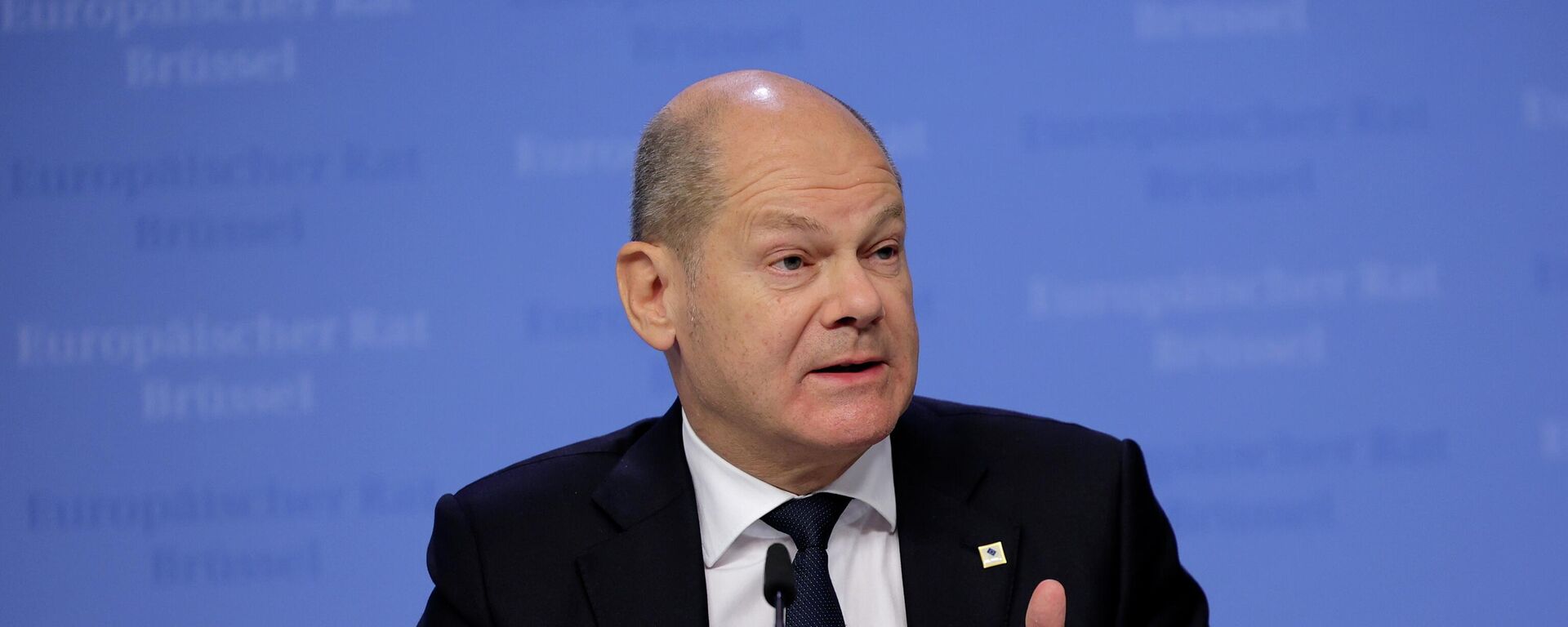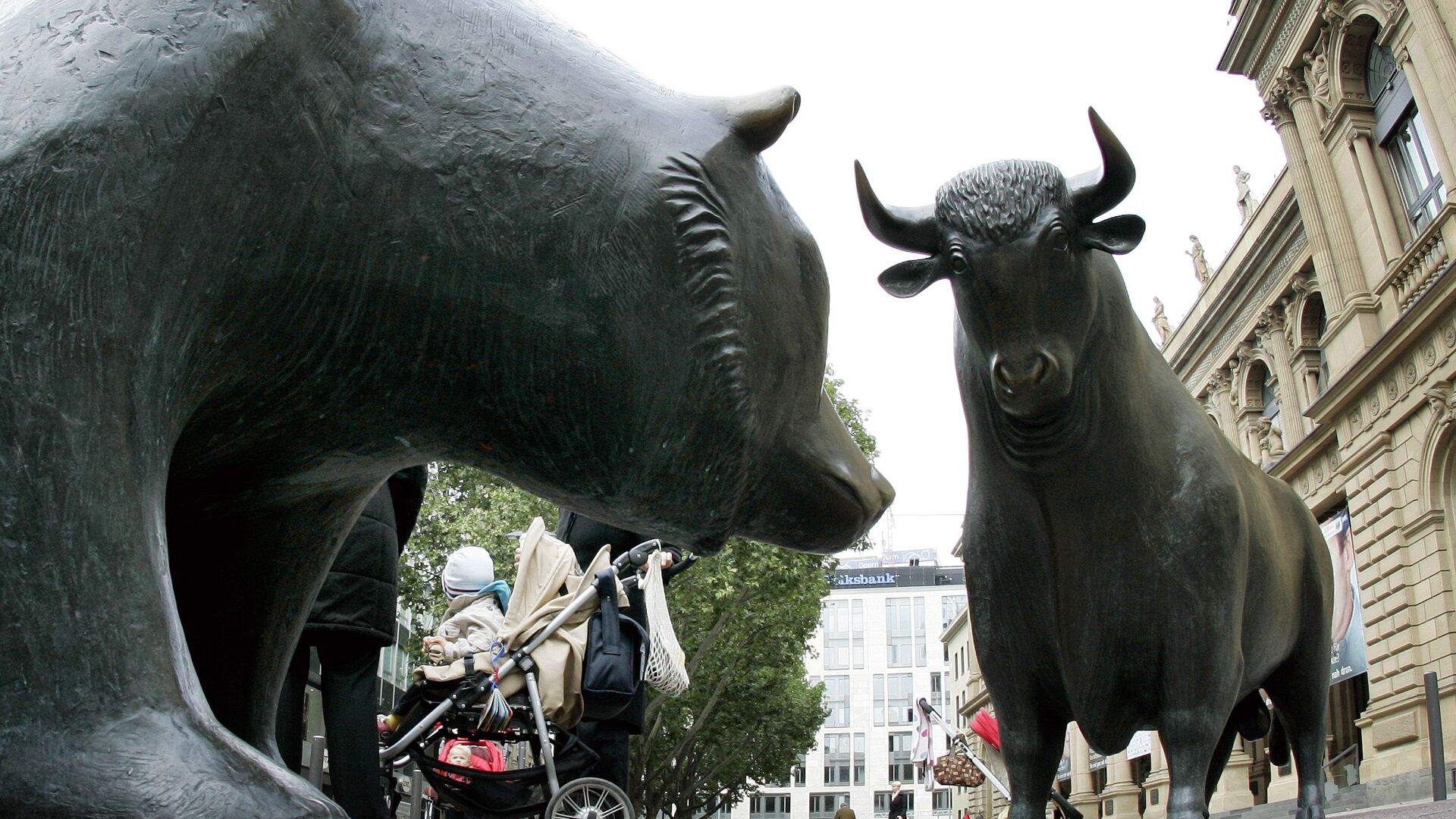https://sputnikglobe.com/20230130/german-economy-contracts-thanks-to-energy-crisis-and-interest-rate-hikes-1106824197.html
German Economy Contracts Thanks to Energy Crisis and Interest Rate Hikes
German Economy Contracts Thanks to Energy Crisis and Interest Rate Hikes
Sputnik International
Western sanctions on Russia's energy exports over its de-Nazification operation in Ukraine have fuelled a pan-European energy crisis, with a knock-on effect on general inflation while reducing industrial output and demand.
2023-01-30T14:12+0000
2023-01-30T14:12+0000
2023-01-30T17:08+0000
germany
business
economy
olaf scholz
russia
european energy crisis 2022
energy crisis
europe's energy crisis
ukraine
federal statistical office (destatis)
https://cdn1.img.sputnikglobe.com/img/107854/90/1078549035_0:228:2296:1520_1920x0_80_0_0_4f8ac421d910301b782832f937557cef.jpg
Germany's economy declined in the fourth quarter of 2022 as soaring energy prices and interest rates took their toll on demand.Gross domestic product (GDP) fell by 0.2 per cent from the third quarter to the fourth, compared to the 0.5 per cent growth recorded for the previous three months. The statistics agency said a drop in private consumer spending was the main cause of the slump, as the federal Bundesbank has raised the baseline interest rate to 1.62 per cent in a bid to control inflation.Franziska Palmas, a senior Europe economist at Capital Economics, said the German economy would "at best flatline in the first half of 2023 and only grow very slowly thereafter."Germany, with its large heavy industrial base, has suffered acutely from the rise in energy prices caused by sanctions on Russian gas, oil and coal imports in response to its de-Nazification operation in Ukraine.But Chancellor Olaf Scholz has continued to hand over much of the German armed forces' most expensive equipment to the Kiev regime, including 40 Marder infantry fighting vehicles, 14 Leopard 2A6 main battle tanks and a billion-Euro Patriot surface-to-air missile battery.
https://sputnikglobe.com/20230124/ukrainian-conflict-to-cost-german-economy-190bln-45-of-gdp-in-2023-study-says-1106633288.html
germany
russia
ukraine
Sputnik International
feedback@sputniknews.com
+74956456601
MIA „Rossiya Segodnya“
2023
James Tweedie
https://cdn1.img.sputnikglobe.com/img/07e4/08/1c/1080307270_0:3:397:400_100x100_80_0_0_7777393b9b18802f2e3c5eaa9cbcc612.png
James Tweedie
https://cdn1.img.sputnikglobe.com/img/07e4/08/1c/1080307270_0:3:397:400_100x100_80_0_0_7777393b9b18802f2e3c5eaa9cbcc612.png
News
en_EN
Sputnik International
feedback@sputniknews.com
+74956456601
MIA „Rossiya Segodnya“
Sputnik International
feedback@sputniknews.com
+74956456601
MIA „Rossiya Segodnya“
James Tweedie
https://cdn1.img.sputnikglobe.com/img/07e4/08/1c/1080307270_0:3:397:400_100x100_80_0_0_7777393b9b18802f2e3c5eaa9cbcc612.png
germany, recession, gdp, economy, russia, energy prices, interest rates, inflation
germany, recession, gdp, economy, russia, energy prices, interest rates, inflation
German Economy Contracts Thanks to Energy Crisis and Interest Rate Hikes
14:12 GMT 30.01.2023 (Updated: 17:08 GMT 30.01.2023) Western sanctions on Russia's energy exports over its special operation in Ukraine have fuelled a pan-European energy crisis, with a knock-on effect on general inflation while reducing industrial output and demand.
Germany's economy declined in the fourth quarter of 2022 as soaring energy prices and interest rates took their toll on demand.
Gross domestic product (GDP) fell by 0.2 per cent from the third quarter to the fourth, compared to the 0.5 per cent growth recorded for the previous three months.
“After the German economy held up well in the first three quarters despite difficult conditions, economic output decreased slightly in the fourth quarter,” German federal statistics office Destatis said on Monday.
The statistics agency said a drop in
private consumer spending was the main cause of the slump, as the federal Bundesbank has raised the baseline interest rate to 1.62 per cent in a bid to control inflation.
Franziska Palmas, a senior Europe economist at Capital Economics, said the German economy would "at best flatline in the first half of 2023 and only grow very slowly thereafter."

24 January 2023, 04:34 GMT
Germany, with its large heavy industrial base, has suffered acutely from the rise in energy prices caused by sanctions on Russian gas, oil and coal imports in response to its de-Nazification operation in Ukraine.
But Chancellor Olaf Scholz has continued to hand over much of the German armed forces' most expensive equipment to the
Kiev regime, including 40 Marder infantry fighting vehicles, 14
Leopard 2A6 main battle tanks and a billion-Euro Patriot surface-to-air missile battery.




